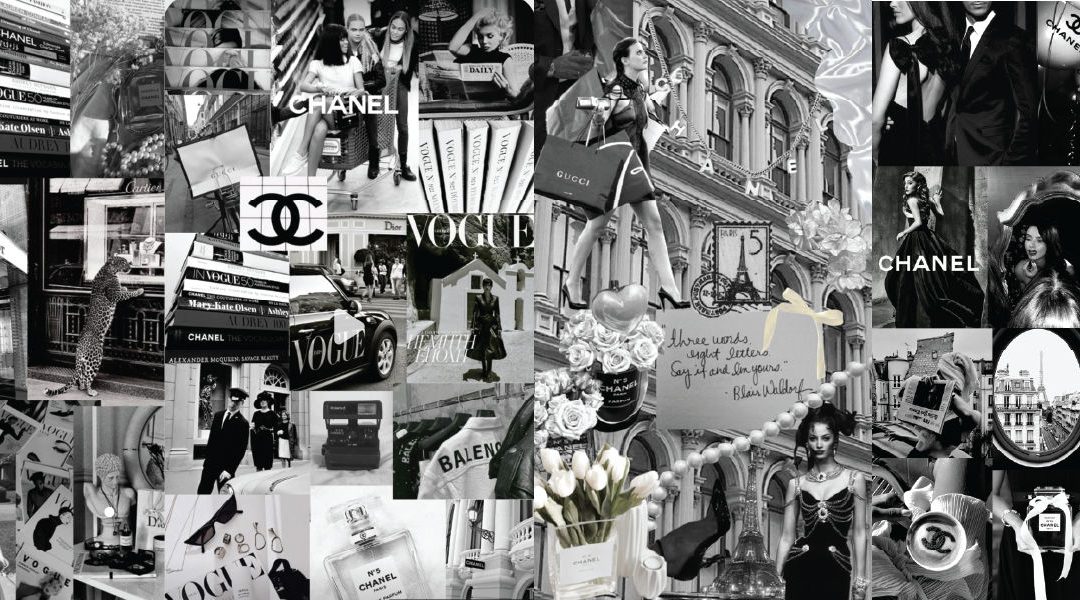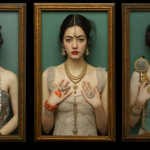By Dr Himani Choudhary, Professor & Department Lead, Fashion Business
Luxury brand management is all about creating unforgettable experiences that leave a lasting mark on consumers. To succeed in this field, companies need to hire graduates who possess innovation, creativity, and skills in media, product design, brand experience, and service development. The art and science of global luxury brand management involve a strategic and creative approach to building, positioning, and managing luxury brands in the global market. To establish their brand in the global market, luxury brands must develop a distinctive and compelling brand identity that resonates with their target audience. This involves defining the brand’s values, heritage, unique selling proposition, and brand story while also crafting the brand positioning to differentiate it from competitors and create a perception of exclusivity, desirability, and superior quality.
Why is developing and maintaining the brand image crucial for luxury brands?
Understanding the luxury consumer is essential for successful brand management. Brand managers must employ sophisticated communication strategies to evoke emotions, create aspirational narratives, and engage with the target audience. By carefully selecting brand ambassadors, creating captivating advertising campaigns, and utilising various channels, including digital platforms and experiential marketing, luxury brands can effectively communicate the brand’s essence and values. Luxury brand managers must keep abreast of consumer behaviour, preferences, motivations, and aspirations to identify target segments and develop tailored marketing strategies. One way of doing this is by conducting market research, consumer surveys, and trend analysis to gain insights into evolving consumer expectations and adapt their brand strategies accordingly.
Luxury is all about heritage and exclusivity
Luxury brands leverage their heritage, craftsmanship, and exclusivity to create a sense of rarity and prestige. Luxury brand managers must carefully manage the brand’s exclusivity and scarcity, controlling distribution channels, limited editions, and collaborations. Louis Vuitton is a luxury fashion brand that has managed to maintain its exclusivity while becoming a global powerhouse. The brand’s iconic monogram pattern and logo are instantly recognisable symbols of luxury. Louis Vuitton has carefully controlled its distribution by having its stores and a limited number of carefully selected retail partners. The brand has also embraced collaborations with artists and designers, creating limited-edition collections that generate excitement and maintain exclusivity. It also maintains a strong focus on craftsmanship and quality, contributing to its aura of exclusivity.
By nurturing the brand’s heritage, traditions, and craftsmanship, luxury brands can ensure that the brand’s authenticity and legacy are preserved and communicated effectively to the target audience. To deliver exceptional customer experiences, luxury brand managers must focus on maintaining rigorous quality control measures, sourcing the finest materials, employing skilled artisans, and ensuring impeccable craftsmanship.
Establishing a loyal customer base
For luxury brands, consistently reflecting the brand’s values, aesthetics, and customer-centric approach is essential to establishing a strong and loyal customer base. luxury brands often engage in strategic partnerships and collaborations to expand their reach, tap into new markets, and create unique experiences. By carefully selecting partners that align with the brand’s values and enhance its image, luxury brands can drive brand awareness, create buzz, and attract new customers. To assess the brand’s success and make informed decisions, luxury brand managers must monitor and measure brand equity and performance indicators, including brand value, market share, customer satisfaction, and brand perception. By incorporating these key aspects into their luxury brand management strategy, organisations can establish a strong and successful luxury brand that resonates with consumers and stands the test of time.
Communication is the key
By creating moments of luxury that exceed customer expectations, luxury brands can establish a loyal customer base and a strong brand reputation. Luxury brands can leverage digital platforms to expand their reach while maintaining a sense of exclusivity for their online customers. They can create exclusive content, online experiences, or limited-time offers, including pre-sale access, exclusive online collections, or virtual events. By using digital channels strategically, luxury brands can create a unique experience for their online customers. Luxury brand managers must create a seamless and cohesive brand experience across all touchpoints and channels to establish a strong brand reputation. They integrate offline and online experiences, designing luxurious retail environments, curating immersive brand events, and developing user-friendly digital platforms.
A brand manager can develop strategies to engage with customers beyond transactional interactions. This can include personalised communication, special events, VIP previews, and access to exclusive content. By nurturing relationships and creating a sense of community, a brand manager can deepen brand loyalty among luxury consumers.
Strategic partnership
Luxury brands often engage in strategic partnerships and collaborations to expand their reach, tap into new markets, and create unique experiences. By carefully selecting partners that align with the brand’s values and enhance its image, luxury brands can drive brand awareness, create buzz, and attract new customers. To assess the brand’s success and make informed decisions, luxury brand managers must monitor and measure brand equity and performance indicators, including brand value, market share, customer satisfaction, and brand perception. By incorporating these key aspects into their luxury brand management strategy, organisations can establish a strong and successful luxury brand that resonates with consumers and stands the test of time.
In today’s world, a degree in luxury brand management can open up exciting career opportunities for individuals. Luxury brand management can be defined as an interdisciplinary subject that utilises time-tested management practices to help organisations and businesses provide premium services. The most common job for individuals with a degree in luxury brand management is that of a luxury manager. A luxury manager is responsible for conducting market research for target products and overseeing and organising advertising campaigns. Other career paths for people with a degree in luxury brand management include product managers, branding and marketing consultants, marketing managers, and communication and public relations managers. The field of luxury brand management offers a wide range of career options, allowing individuals to pursue their passions and interests within the industry.












